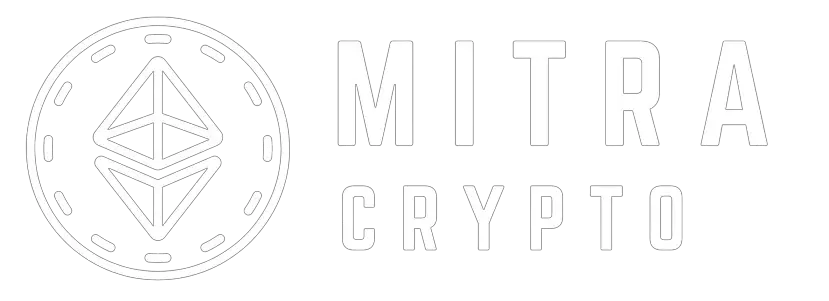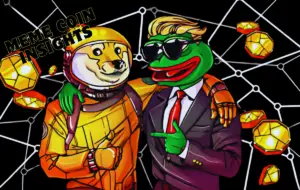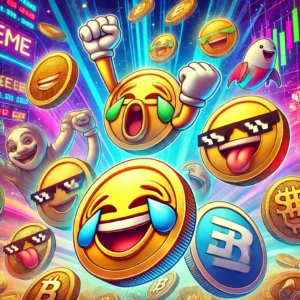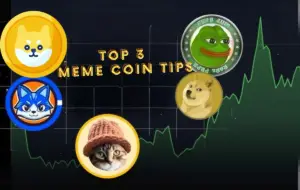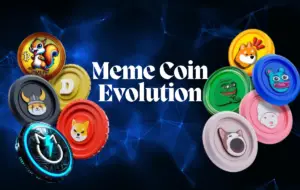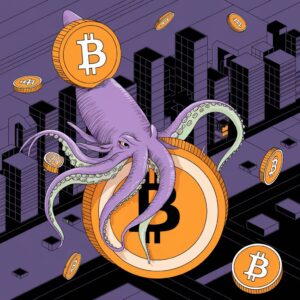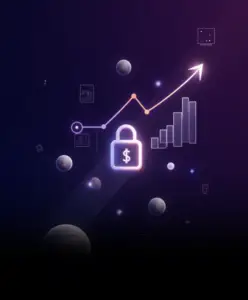From Gaming to Earning: How Blockchain is Powering $100 Billion Blockchain Economy
Envision a world where your virtual sword holds the same esteem as genuine domain, and your computerized avatar might be the key to gaining a consistent pay. Welcome to the energizing world of blockchain gaming, where the boundaries between play and profit are quickly vanishing. In this investigation of ‘Gaming Economies: The Control of Blockchain Integration,’ get ready to find how this groundbreaking innovation is not only changing the way we game but also how we value digital assets in today’s world.

The Development of Veritable Computerized Proprietorship in Gaming
At the center of blockchain gaming may be a game-changing thought: genuine possession of in-game resources. Not at all like conventional diversions, where your hard-earned things are limited to the game’s servers, blockchain innovation ensures that your advanced things are yours to keep, put away safely on a permanent record. This move is revolutionizing the gaming world, giving players unprecedented power and control over their virtual resources.
Take, for case, Crypto Kitties, one of the primary blockchain-based recreations. Each advanced cat in the diversion may be a special non-fungible token (NFT) that has a place totally to the player. This concept has since detonated, with groundbreaking recreations like Axie Infinity and Decentraland pushing the limits of what is conceivable in virtual economies.
Play-to-Earn: Gaming as a Way to Pay
The rise of blockchain innovation has started an unused time in gaming, presenting the play-to-earn model—a progressive move in how players interact with games. In this new framework, players can earn cryptocurrency or valuable in-game assets just by participating. This change is not only modifying the way we game but also reshaping how individuals perceive digital economies.
Take, for instance, Axie Infinity, where players gain genuine rewards by battling and collecting advanced animals. During times of financial hardship, numerous players have turned to these diversions as an authentic source of pay, proving that play-to-earn is more than just a trend—it’s a new way of living and earning. This rising model is paving the way for the future of both gaming and digital finance, offering players a chance to monetize their time in ways never before possible.
Blockchain’s Edge: Guaranteeing Secure and Straightforward Exchanges
One of the most compelling advantages of integrating blockchain into gaming is the enhanced security and transparency it brings to in-game transactions. Thanks to the decentralized nature of blockchain, each action—whether purchasing a rare item or trading virtual land—is logged on an open record that is permanent and tamper-proof.
This level of security is fundamental in an industry that has long struggled with fraud and hacking. With blockchain innovation, players can engage in transactions with peace of mind, knowing their digital assets are protected by advanced cryptographic techniques. Unlike traditional gaming platforms, which can be vulnerable to breaches, blockchain offers a level of security that sets a new standard for the industry.
The Interoperability Insurgency: Your Resources, All over You Play
Picture this: using your favorite sword, not just in one game, but across an entire universe of virtual worlds. This is the magic of interoperability in blockchain gaming. By tokenizing in-game assets on the blockchain, developers are building a shared environment where your items can seamlessly travel from one game to another, breaking free from the limits of individual gaming worlds.
This vision aligns with the evolution of the metaverse—a completely interconnected digital universe where your online experiences flow seamlessly across different platforms.
Real-World Impact: Blockchain Gaming Case Studies
To understand just how transformative blockchain is for gaming, let us take a closer look at real-world examples that illustrate the power of blockchain technology in action.
- Decentraland: Step into a virtual world where you can buy, sell, and develop your own digital real estate—all secured by the power of blockchain.
- Axie Infinity: A play-to-earn revolution that has opened doors to financial opportunities for thousands, especially in developing nations, allowing players to earn real-world value through gameplay.
- The Sandbox: A voxel-based universe where creativity thrives, enabling players to create, own, and profit from their unique gaming experiences.
The Future of Blockchain Gaming: Key Trends Shaping Virtual Economies
Blockchain innovation is revolutionizing the gaming industry, creating not just new gaming experiences but entire virtual economies that hold real-world value. As we move forward, several exciting trends are emerging in blockchain gaming that promise to reshape the landscape of digital entertainment:
- Decentralized Gaming with Web3 Integration
- Games are evolving beyond traditional models, embracing decentralization through Web3 technologies. This shift empowers players with more control over their gaming experiences, enabling them to own, trade, and govern virtual assets and in-game economies like never before.
- NFTs at the Center of Gaming
- The next wave of gaming is driven by NFTs (Non-Fungible Tokens). These unique digital assets are transforming the gaming world by allowing players to own exclusive content, such as characters, skins, and in-game items. This ownership model creates new possibilities for players to monetize their assets and add a personal touch to their gaming journey.
- The Metaverse: Connecting Virtual Worlds
- Blockchain games are increasingly becoming part of the broader metaverse, where interconnected virtual worlds blend seamlessly. Players can move across different games and platforms, carrying their digital assets with them, creating a more immersive and interconnected virtual experience.
Overcoming Challenges in Blockchain Gaming
Despite its massive potential, blockchain gaming faces significant obstacles that need addressing:
- Scalability Issues
- Many blockchain games struggle with scalability. High transaction fees and slow processing times during peak usage can impact the player experience and limit the growth of gaming ecosystems.
- Uncertain Regulatory Environment
- The evolving regulatory landscape surrounding cryptocurrencies and digital assets adds another layer of uncertainty. Different regions are grappling with how to treat blockchain-based economies, which can impact game developers and players alike.
- Accessibility and Investment Barriers
- While play-to-earn models offer exciting opportunities, they often require an upfront investment that can be a barrier for some players. Ensuring that blockchain games remain accessible to a broad audience without compromising the fun and rewarding gameplay experience is a key challenge for developers.
Blockchain Gaming’s Financial Impact: Beyond the Digital Realm
The impact of blockchain gaming reaches far beyond entertainment, influencing real-world economies in several ways:
- New Job Opportunities
- Blockchain gaming is creating new forms of digital labor, with players able to earn income by contributing to virtual economies. This could lead to the development of entirely new job markets within the digital space.
- Shifting Economic Paradigms
- As blockchain gaming continues to expand, it could reshape traditional financial systems. The concept of “play-to-earn” is just the beginning. Future digital economies may reward individuals for a variety of contributions, sparking the development of broader “participation economies.”
Conclusion: Embracing a New Era of Gaming
Blockchain gaming holds immense promise to revolutionize not just how we play, but how we interact with digital economies. As these trends evolve and new challenges are addressed, we may soon witness a transformation that goes beyond gaming, shaping the way we think about work, value, and participation in digital spaces.

